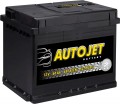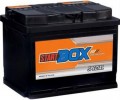Starting power (EN)
The starting power of the battery, measured according to the EN standard (the unified standard of the European Union). According to this standard, the starting power is the maximum power that the battery can deliver for 30 seconds at an electrolyte temperature of -18 °C without the voltage dropping below a certain level (for standard 12 V batteries - not lower than 7.2 V). The term "starting" appeared because this operating mode is similar to starting an engine, when the battery has to deliver a high-power power to the starter for a short time.
The recommended starting power value is generally related to the weight category of the vehicle: the heavier it is, the more powerful the power usually needed to start it. And many manufacturers directly indicate the recommended values in the characteristics of a particular vehicle model. If the battery is purchased as a replacement, the general rule is: its starting power should be no less than that of its predecessor.
Note that in practice, starting power designations may be encountered according to 3 more standards: SAE (USA), DIN (Germany) and TU (GOST 959-91). The first is almost identical to EN, and DIN and TU are quite easy to translate into EN and vice versa: they are similar to each other, and each of them gives a number approximately 1.7 times smaller than NE. That is, for example, to replace a 200 A battery according to TU, you should look for a model with a power of at least 340 A (200 * 1.7) according to EN.

